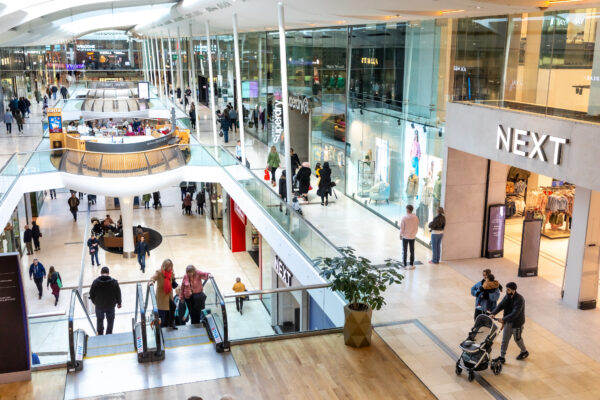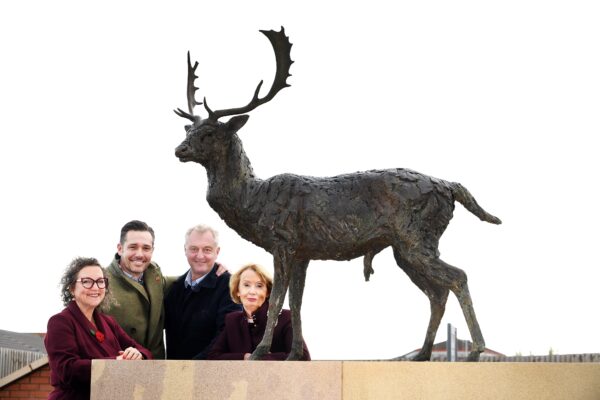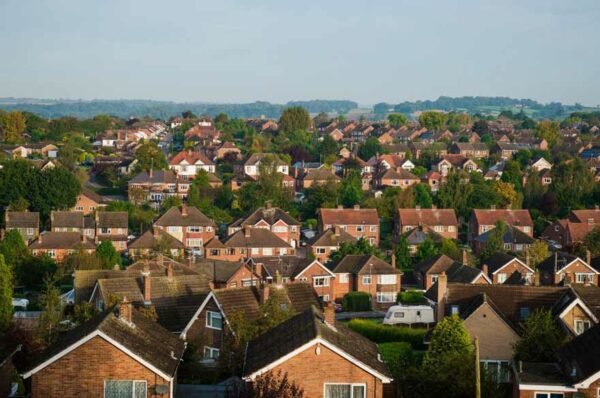Investment News | 16 October 2024
Talking Investment: ‘Derby offers plenty of opportunities for investment and growth’

As he marks 30 years of working at BB&J Commercial in Derby, Mark Richardson, who is a partner at the firm, has been reflecting upon the changing fortunes of the city’s commercial property sector – and why he believes there could be good times ahead, thanks to major investments being made in Derby city centre.

2024 is my 30th year of working at BB&J Commercial in Derby so it is fair to say I’ve seen quite a few changes in the city over that time and formed some fairly strong opinions on where things have gone right, and indeed wrong!
Business activity is often cyclical, driven by wider economic factors.
The two don’t always coincide in terms of timing, and there is understandably often a lag with business activity taking time to respond to external factors both good and bad.
Typically, business activity will be hit following a recession and pick up as economic conditions get better.
In either case this will be apparent in the years after the event, most visibly in examples such empty shops on the high street when things are bad, and businesses opening when things are good.
So far, so simple. But Covid ripped up the traditional property playbook and has left us in a place with a level of uncertainty and unknowns in the property sector we have not seen before, possibly ever.
This is because there have been massive social changes, as well as economic ones.
As well as the inevitable slowdown in activity and the more recent economic problems of high interest rates, utility bills and costs of living, we are all trying to deal with massive social changes, which have fed through to have a significant impact on towns and cities everywhere.
The drive to home or hybrid working has made businesses question their need for office space, the accelerated push to online shopping has resulted in large retailers pulling away from high streets and leaving empty voids.
What we need to appreciate as we walk around our city, is that it is not just Derby.
I work across the East and West Midlands and see many small towns to big cities going through the same problems.
So, how do we in Derby deal with it?
To start with, I think a bit of reality and perspective is needed. The reality is that the city has been hit on the high street and we can all see that in the number of empty units.
It has been made worse by a lack of support over the years for (and indeed in some quarters vocal opposition to) development in the city centre.
There has been a significant lack of working and living schemes being built in the city core, and no people equals no demand so, therefore, no populace to feed either a busy daytime or night-time economy.
The perspective part, however, is that if we stand back and take a look at where Derby is now and where it can go there are numerous positive signs of things improving and plenty of opportunities for investment and growth.
The opportunities need to be taken though, so let’s look at those.
In terms of positives, we have seen demand for property in the industrial sector has been very strong across the region.
In terms of both letting and selling small and large industrial units we often find ourselves, as agents, in a ‘best bids’ scenario, where rents and sales prices on a pound per square foot basis are being driven ever higher, with rents for industrial space in some cases being higher than for office space.
Investors are particularly keen in acquiring industrial stock with tenants in place as they recognise the sector as one where demand will be there for the long-term, without the issues affecting the retail and industrial markets.
We have acted for clients in agreeing numerous deals, including a number of off-market transactions where a bit of discretion is needed.
The good news with the industrial sector is that the positive activity reflects an underlying economic confidence, which has continued throughout the last several years despite wider issues.
The office market is, I think, still trying to find its place.
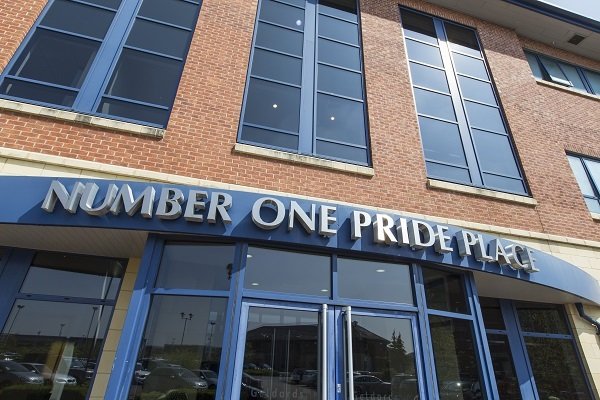
Derby, like many cities has seen as increase in hybrid/home-working so larger occupiers have effectively ‘downsized’ as and when they can get out of their existing buildings.
Locally based CUBO has expanded nationally by providing high quality flexible working space attracting blue-chip occupiers and have recently opened another building on Derby’s Pride Park.
Just around the corner from that we have had considerable success letting and selling a number of smaller office buildings in Brunel Parkway, on Pride Park, and other areas around the city, with the emphasis being on quality of accommodation.
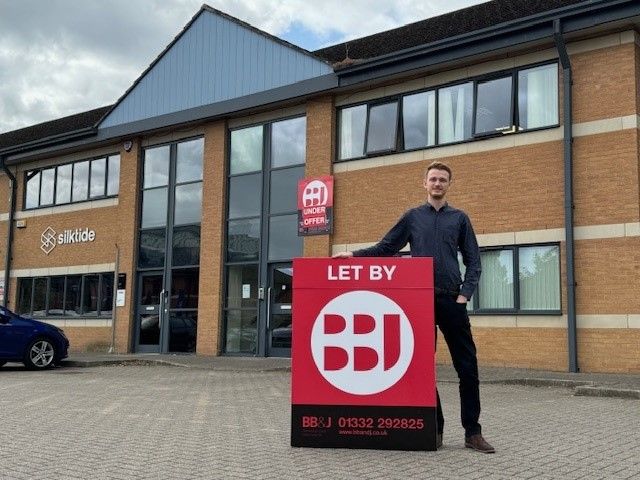
Again, it is a sign that there is confidence out there but there is currently a shift to smaller rather than larger office space.
The retail sector is where the most visible challenge has been and continues to be.
Where retailers pull out of stores it can leave streets looking very forlorn and Derby has been no exception.
Where there are a good number of ‘anchor’ tenants in place it can help attract new occupiers and, of course, the Derbion continues to attract prominent retailers.
This has, however, come at the expense of hitting the independent sector, although we have found the smaller units do continue to have a good churn of tenants in the city, something which is mirrored in other local towns.
The old adage that Britain is a ‘nation of shopkeepers’ still seems to be true.
We have found that key to attracting buyers for premises in the city is to try to see if there are opportunities to add value.
Traditionally, many city centre shops have had ground floor retail operators and redundant or poor-quality space above of little value.
Over the last few years, however, the good news is we have seen an increase in demand from investors to buy city centre buildings and convert the upper floors to high quality apartments with this now being the main income stream.
We have sold numerous opportunities for such mixed residential and business use around the city recently in areas such as Friar Gate, Sadler Gate, St Mary’s Gate and Ashbourne Road.
The key to unlocking a rejuvenation of our city centre is not just the availability of opportunities, it is the facilitating of them in cases where planning consent is required.
Derby City Council planners have a significant part to play in helping facilitate development.
Historically, developers have often seen getting planning consent anywhere as being a challenge, if not an absolute obstacle for progress.
Putting to one side the exasperation that we have not had a sizeable performance venue since the Assembly Rooms shut a decade ago, we are at last now on the cusp of some major developments being completed that will have a very positive knock-on effect in terms of increasing footfall and demand for leisure, retail and residential space.
The Becketwell regeneration and soon-to-open performance venue is of city-wide significance and should create knock-on demand across both the hospitality and accommodation sectors, which needs to be encouraged if we want to revitalize our city core.
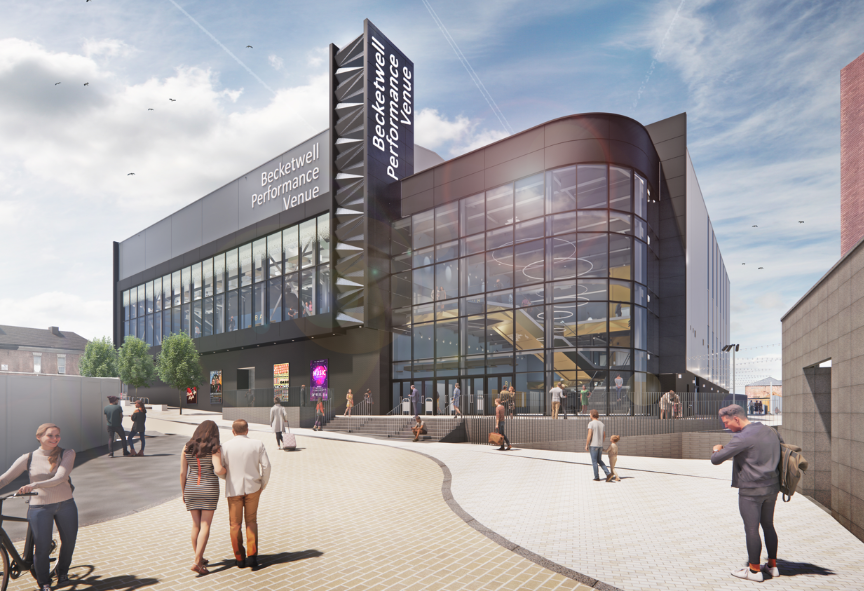
We have seen significant take up of opportunities to acquire buildings in the area including in the Cathedral Quarter and have redevelopment opportunities available in very close proximity in Bramble Street and Sadler Gate.
The reopening of the Market Hall within the Cathedral Quarter will also help drive renewed interest in what the city can offer and will be centred around hospitality.
The University of Derby has also invested heavily in the city centre.
The soon to open Business School, in Agard Street, is an impressive building and along with the Law School and others has really helped drive redevelopment in the city to provide student accommodation.
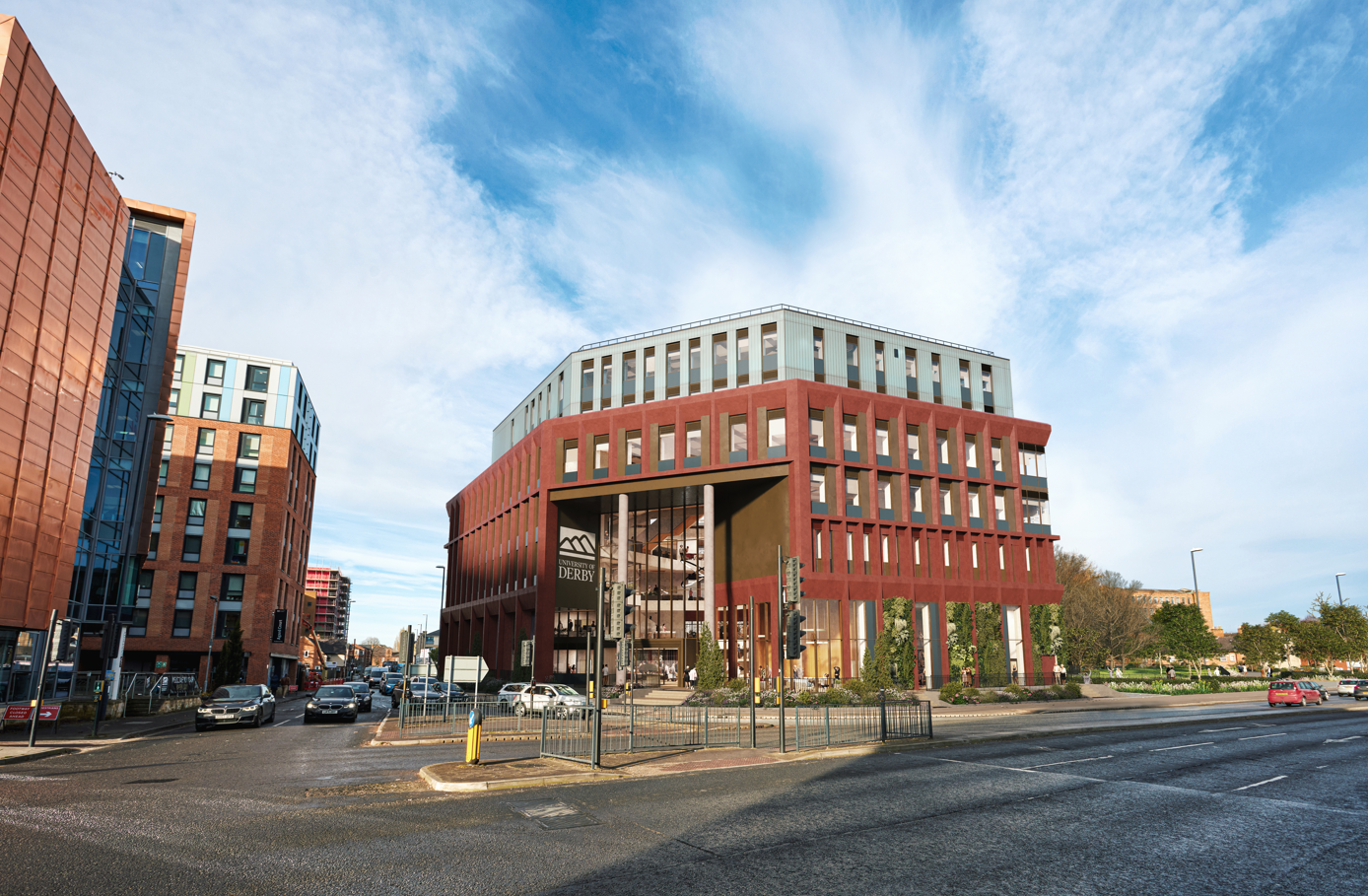
We have sold a number of development opportunities for student schemes, including a 45-bedroom site in Slack Lane, currently being developed by the Berry Group, as well as others in Ashbourne Road.
It wasn’t that long ago the university sat on its campus in Kedleston Road where it felt a long way from the centre of Derby – so, I think a huge amount of credit has to go to them, as the knock-on effect of their city centre developments has been of great significance.
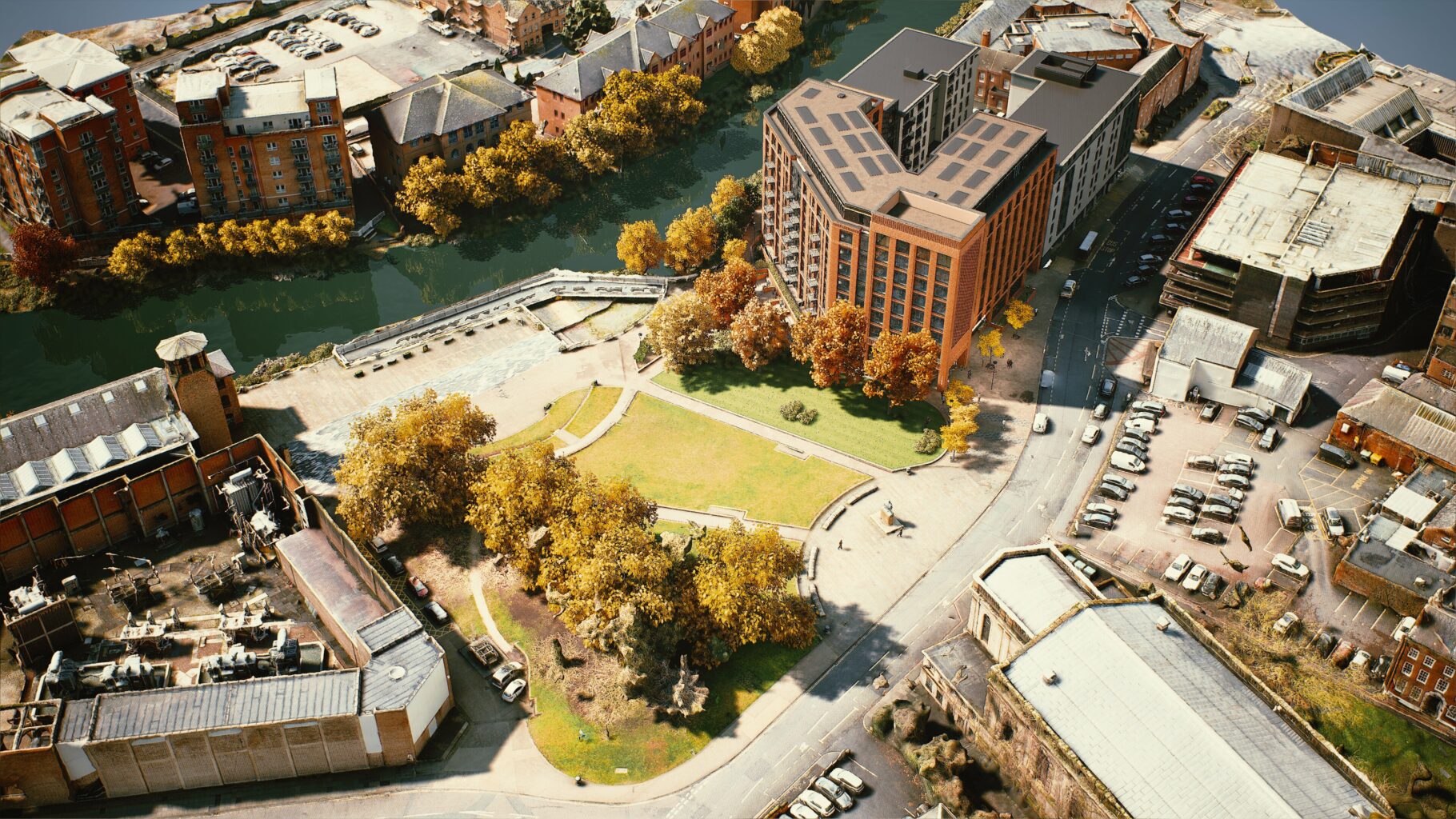
In terms purely of residential development, I’m happy to see that Wavensmere Homes was recently granted consent for 195 apartments in Full Street overlooking the river (a perfect illustration of land with consent for office use being converted to residential), as well as the go-ahead on the long-dilapidated Friar Gate Goods Yard, which has stood unused for over 56 years and will be a mixed use scheme with over 270 homes.
Added to schemes such as the Nightingale Quarter and Becketwell that is significantly over 1,500 additional homes within walking distance of the city centre.
That is a huge potential additional market, of which there is the opportunity to tap into.
Again, returning to perspective, there are then a lot of reasons to invest in Derby due to the redevelopment schemes both shortly to open or having been given a green light in terms of planning consent.
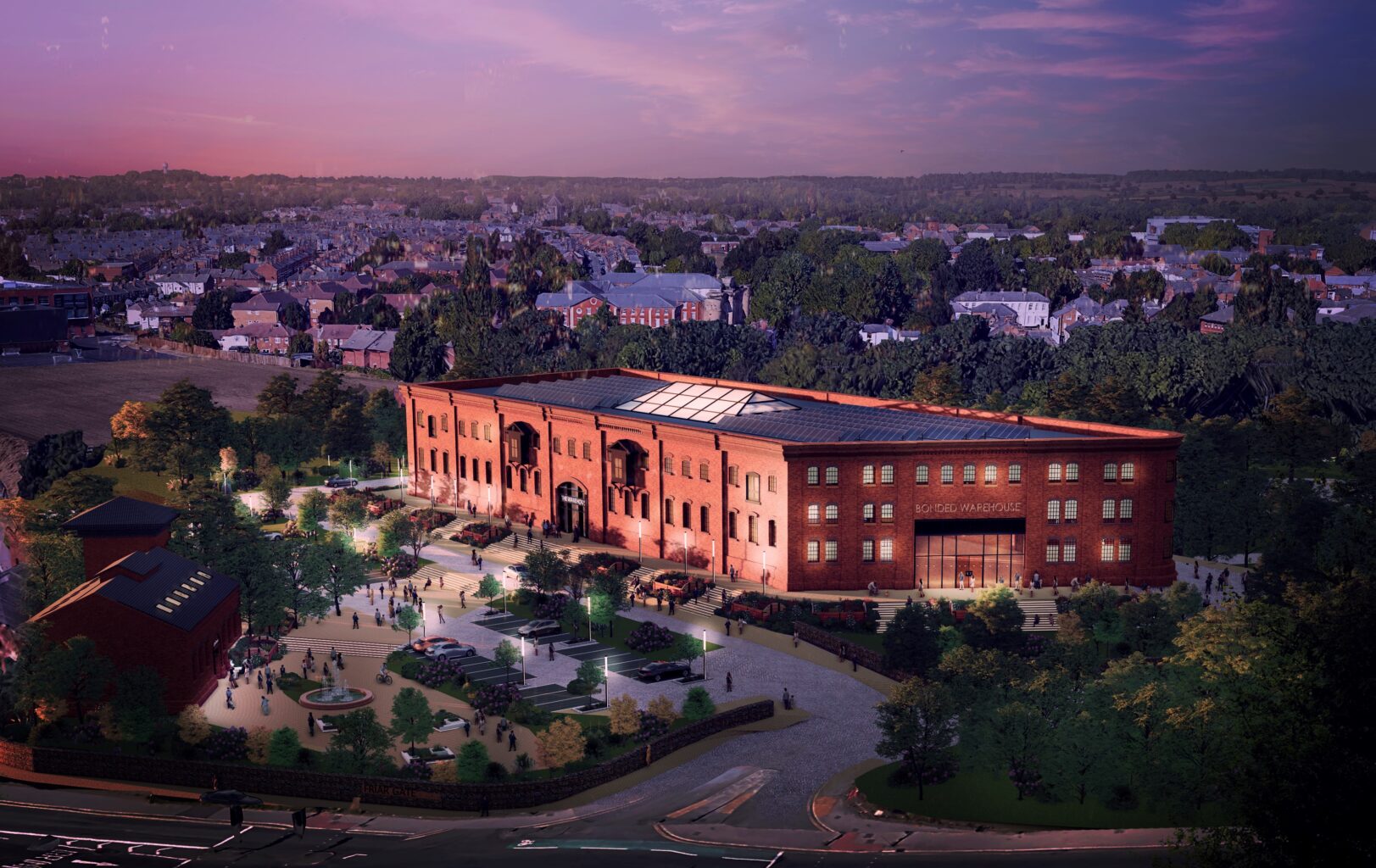
Multiple opportunities exist across all sectors and we need to be looking forwards towards what we can achieve by welcoming and facilitating development, rather than looking backwards and blocking it.
Past years have proven beyond any doubt that lack of development will kill our cities, not preserve them. There is room to both look after our heritage and encourage development.
In a much wider context at the national level, we have a new government in place and an upcoming Budget.
It is fair to say there is a significant level of nervousness on the part of business owners, developers and investors alike over what will be in there.
Many are expecting tax rises and a hit on Capital Gains Tax, but the Government have to be very careful.
On the one hand we have positive news such as inflation and interest rates easing, and these are signs for general economic optimism.
It is making borrowing more affordable and that in turn encourages development and investment.
As we stand on the cusp of things hopefully (and finally) getting better both locally and nationally we are at a pivotal point economically then.
Businesses are looking for reassurance from the Government, not draconian measures.
But business is business. It does not have the luxury of saying ‘we aren’t going to do it today’.
So, whatever is in the Budget we will just have to get on with it, and hope there are measures there that will help encourage the investment and redevelopment that we need.
